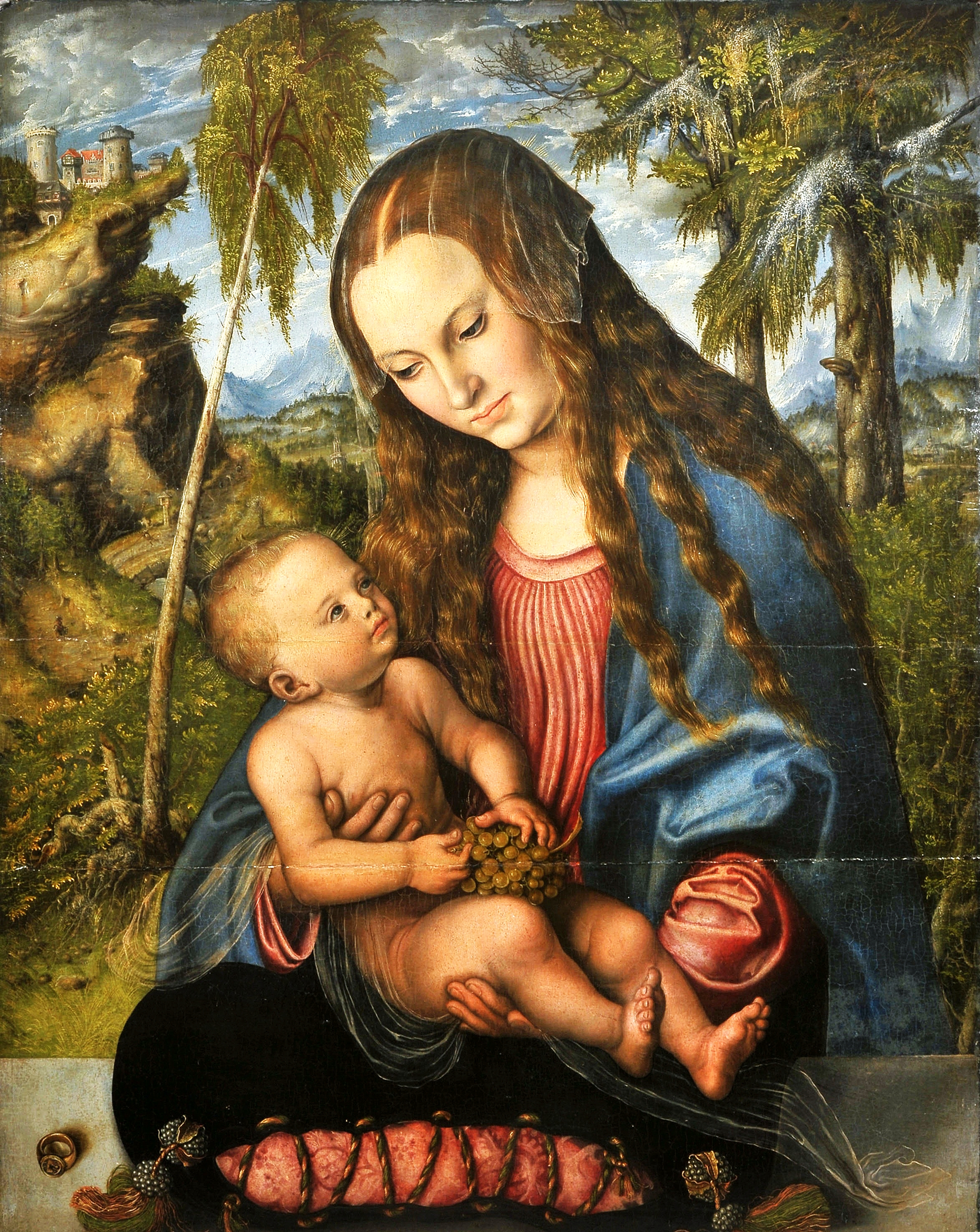 |
| Catherine of Siena |
I have always loved the saints, especially Saint Mary Magdalene and Saint Catherine of Siena, so it has been exciting for me to get to know more about them. Still, the first time I heard the "Hail Mary," I found it very confusing. It was at a Catholic rosary service for a friend's mother, who had died. As they repetitively recited the prayer, I didn't really understand it:
 |
Madonna and Child
(Virgin Mary and Jesus)
by Louis Cranach the Elder
|
"Hail Mary, full of grace, The Lord is with thee. Blessed art thou among women and blessed is the fruit of thy womb, Jesus. Holy Mary, Mother of God, pray for us sinners now and at the hour of our death. Amen."All I heard was people crying out and not being heard. I misunderstood the meditative consolation of the repetition. More importantly, I did not fully notice the final request: "pray for us."
Tonight, as my husband and I attended Mass on the eve of All Saints Day (more commonly known as Halloween), we sang the Litany of the Saints. In this observation, the cantor calls out to a list of saints, starting with the Virgin Mary and sorting through the Apostles, early martyrs, and others. After each saint's name is called, the congregation responds, "Pray for us." Tonight, after the list of traditional saints had been recited, the cantor began calling the names of people who had died in our parish over the last year. The first name called was my mother-in-law, who passed away on her birthday just before Christmas. "Helen Ciucevich," the cantor sang. "Pray for us," the whole congregation responded. It took me by surprise. I slumped back in the pew and quietly cried as they continued to call upon the others we had "lost."
It is the power of this moment that is so comforting. Helen is not "lost" to us; she is still a part of our lives and of our family in Christ. Just as my own Protestant mother sometimes talks to her own departed mother, we all can still talk to Helen and to the saints. My prayer tonight for Helen to pray for me and for us is really no different than when my mother says, "Mama, help me get through this," on a difficult day.
Most Protestants believe in everlasting life and the idea that the children of God all become "saints." If I can ask my living brothers and sisters to pray for me, then I should also be able to ask the same thing from those who have passed on.
And, just as I can look to others in our Christian family as role models and sources of inspiration, so too can I examine the lives and works of those who are no longer on this Earth; whether they have been canonized by the Church or not. As our pastor said during his homily tonight, "the saints are not perfect," they were human, after all, but if I can draw strength, or courage, or learn how to be more loving, more faithful and more gracious from their example, why would I not wish to do that.
And, if they and others will pray for me, I will humbly accept any help I can get.
No comments:
Post a Comment